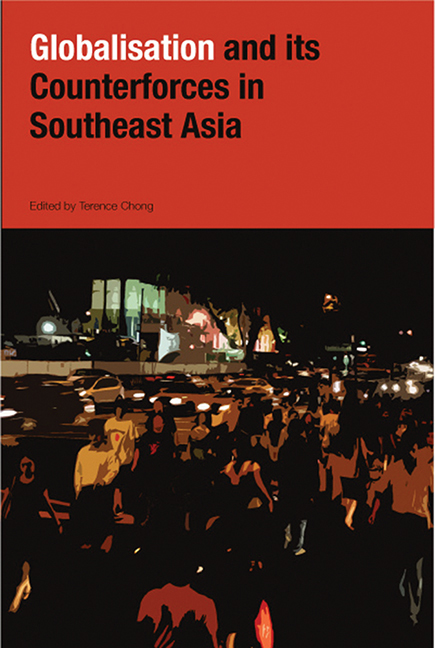Book contents
- Frontmatter
- Contents
- Foreword
- Preface
- The Contributors
- Introduction
- Part I The Political Contradictions of Globalization
- Part II Economic Regionalism and Global Influences
- 6 Globalization and the Role of the State in the Asia-Pacific
- 7 Economic Nationalism and the Limits of Globalization
- 8 Southeast Asian Perspectives on the Economic Rise of China
- Part III Local Security, Global Insecurity
- Part IV Social Processes: Arrested Development
- Part V Cultural Production in the Global Matrix
- Index
6 - Globalization and the Role of the State in the Asia-Pacific
from Part II - Economic Regionalism and Global Influences
Published online by Cambridge University Press: 21 October 2015
- Frontmatter
- Contents
- Foreword
- Preface
- The Contributors
- Introduction
- Part I The Political Contradictions of Globalization
- Part II Economic Regionalism and Global Influences
- 6 Globalization and the Role of the State in the Asia-Pacific
- 7 Economic Nationalism and the Limits of Globalization
- 8 Southeast Asian Perspectives on the Economic Rise of China
- Part III Local Security, Global Insecurity
- Part IV Social Processes: Arrested Development
- Part V Cultural Production in the Global Matrix
- Index
Summary
INTRODUCTION: QUESTIONING THE EAST ASIAN MIRACLE AS A UNIVERSAL MODEL
The so-called economic miracle in the Asia-Pacific region is clearly the most spectacular development experience the world has seen during the second half of the twentieth century. It has provoked scholars in the social sciences, development economists in particular, to rethink theories of economic development and social change, and has urged policymakers to reconsider and reformulate strategies and policies. The experience of the Asia-Pacific region has rightly been held up as a case of development worth studying and learning from. It has been the case in point for numerous empirical studies and it has generated an abundance of theorizing, not least about the role of political institutions in economic development. This chapter looks at the new role for the state and the changing policies that have emerged with globalization among some of the ASEAN states since the mid-1980s.
The uniqueness of the Asia-Pacific economic transformation is that it has three, beneficial, interlinked characteristics. First, extremely high rates of economic growth have been maintained over a period of several decades. Second, economic growth has been associated with a process of large-scale industrialization and structural transformation and modernization of society. Third, the gains from economic growth appear to have been shared by the population in a reasonably equitable manner.
The challenge to conventional development theory, and theory of social change in general, posed by the Asia-Pacific experience has been considerable. In short, the main controversy in the debate has been over the question of whether the Asia-Pacific growth experience confirms or challenges the universality of a “Western” road to industrialization and modernization, which boils down to the question of whether institutions normally associated with the market economy (ranging from regulatory frameworks, which enable impersonalized exchange, to financial and marketing institutions) have been implemented in the region or whether they have been substituted for by “Asian institutions”.
- Type
- Chapter
- Information
- Globalization and its Counter-Forces in Southeast Asia , pp. 119 - 133Publisher: ISEAS–Yusof Ishak InstitutePrint publication year: 2008



